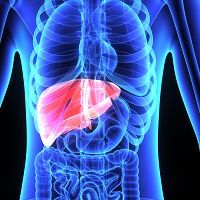Article
Investigational Antiviral Helps Broad Hep-C Field
Author(s):
A new antiviral combination that shows dramatic results in getting a response from patients with both chronic kidney failure and hepatitis C is proving versatile.

The new Merck antiviral combination that shows dramatic results in getting a response from patients with both chronic kidney failure and hepatitis C is proving versatile.
In a study reported this morning at the 2015 International Liver Congress, Merck researchers related data showing that a daily tablet of investigational drug grazoprevir/elbasvir helped patients with or without cirrhosis who were infected with three of 6 of the hepatitis C virus genotypes. Those types are genotypes 1, 4, and 6.
The study is called C-EDGE, a phase 3 clinical trial that looked at the drug combo’s effectiveness in patients with or without cirrhosis. Some subjects also had HIV infection. The drug drew a sustained viral response in all groups.
Yesterday Merck researchers reported on a related trial of the drug in patients with chronic kidney disease who also had hepatitis C, a study known as C-SURFER.
In C-EDGE, patients got the drug for 12 weeks as a daily tablet. Fully 95% of those in the study responded to the treatment (299 of 316).
The response in the group with HIV infections was 92%. The findings are being published today in Annals of Internal Medicine.
The lead investigator is Eric Lawitz, MD, vice president for scientific and research development at The Texas Liver Institute and a clinical professor of medicine at the University of Texas Health Science Center in San Antonio, TX.
The response was highest in patients with genotype 4 (100% of 18 patients). In those with genotype 1a it was 92% (144 of 157 patients). In the group with genotype 1b or other genotype 1 the response was 99% (129 of 131 patients). The genotype 6 group had an 80% response (8 of 10 patients).
Discussing the results at a news briefing this morning, Merck’s Eliav Barr, MD, said the company will submit the results to the US Food and Drug Administration in a new drug application by June 30, 2015.
The global burden of HCV infection is a costly one. It affects from 130 million to 170 people globally.
The prevalence of genotypes varies geographically, and shifts with immigration patterns, said Merck’s Joan Butterton, MD, a Boston, MA-based infectious disease expert. For instance, genotype 1 is the most prevalent in the US, while type 6 predominates in Asia, she said. Each genotype responds differently to treatment.
Patients can live for decades without knowing they have the infection but 350,000 to 500,000 people who have the disease die annually. Finding a daily pill without troublesome side effects is a cherished research goal, Butterton said.
Combined with the promising results of the C-SURFER, the drug combo holds the promise of not only reducing the global threat of hepatitis C, but of reducing the numbers of patients who develop chronic kidney disease.
Researchers plan to look at their data and do future studies to see what happens to the chronic kidney disease patients in the study whose hepatitis C infections were halted by the drug combo.
“Ideally we’d like to treat these patients earlier than stage 4 or stage 5 [kidney disease],” Butterton said. Hepatitis C plays a major role in kidney disease—one that is the cause of about 10% of kidney disease cases, she said.
If those patients were cured early, that could even lead to a reduced need for kidney transplants. Meanwhile, she said, they are elated with the immediate results of the two studies.
2 Commerce Drive
Cranbury, NJ 08512
All rights reserved.




